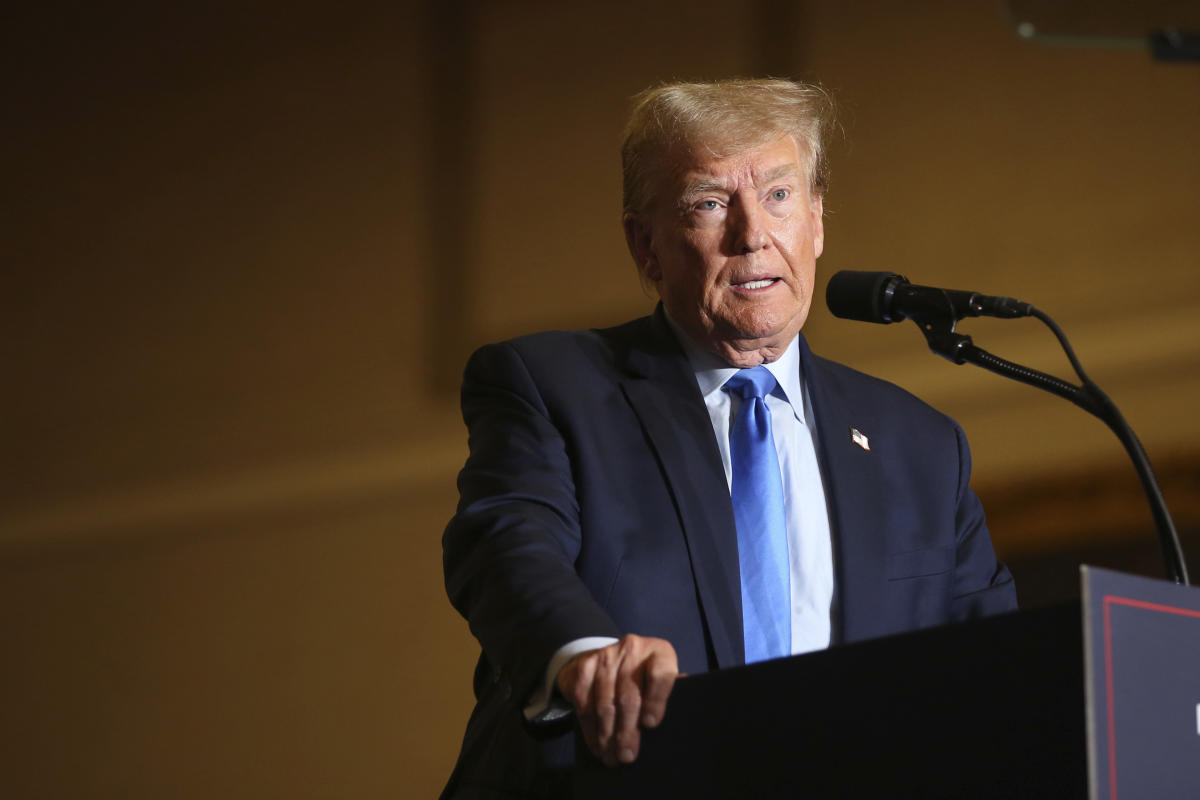When Deutsche Bank granted loans to Donald Trump’s company for hundreds of millions of dollars, the bank always adhered to its own strict guidelines, including verifying the information provided by potential borrowers, an executive testified Tuesday at the former president’s civil fraud trial.
The loans, which were for projects in Florida, Chicago, and Washington, D.C., are the focus of New York Attorney General Letitia James’ lawsuit. She contends that Trump and his company deceived lenders and insurers by providing financial statements that greatly inflated his asset values and overall net worth. The defendants deny the allegations.
Deutsche Bank reviewed the financial statements before approving the loans through its department that caters to wealthy individuals, a path that allowed for more favorable interest rates than those likely available from the commercial real estate division, according to the lawsuit. The deals came with conditions about Trump’s net worth and liquidity and often required annual submissions of his financial statements.
However, managing director David Williams, testifying for the defense, stated that the bank viewed clients’ reports of their net worth as “subjective or subject to estimates” and took its own view of such financial statements. Williams emphasized that the lenders expected clients-provided information to be accurate but acknowledged that the statements were largely reliant on the use of estimates.
At times, the bank assessed Trump’s net worth at $1 billion or more lower than he did, according to documents and testimony. But Williams noted that this was not unusual or alarming.
The attorney general’s office, on the other hand, contends that such adjustments were never intended to account for the alleged fraud. A now-retired Deutsche Bank executive, Nicholas Haigh, testified earlier in the trial that he assumed the figures “were broadly accurate,” though the bank subjected them to “sanity checks” and sometimes made substantial “haircuts.”
Judge Arthur Engoron had already ruled that Trump and other defendants engaged in fraud. The trial is to decide remaining claims of conspiracy, insurance fraud, and falsifying business records. With no jury, Engoron will decide the verdict.
Trump, a current Republican 2024 presidential front-runner, views the case as a political attack from James, a Democrat. He maintains that his financial statements actually underestimated his wealth and that any overstatements were mistakes.
He claimed in his own testimony this month that his lenders were more interested in property locations and the parameters of the deals than the financial statements. He insisted that lenders were essentially told to do their own homework, pointing to disclaimers saying the statements weren’t audited, among other caveats.
Deutsche Bank guidelines instructed lending officers to “independently verify all material facts,” and Williams assured that the bankers followed those and other instructions when dealing with Trump.
James wants the judge to impose over $300 million in penalties and ban Trump from doing business in New York, on top of Engoron’s pretrial order that a receiver take control of some of Trump’s properties. An appeals court has frozen that order for now.


